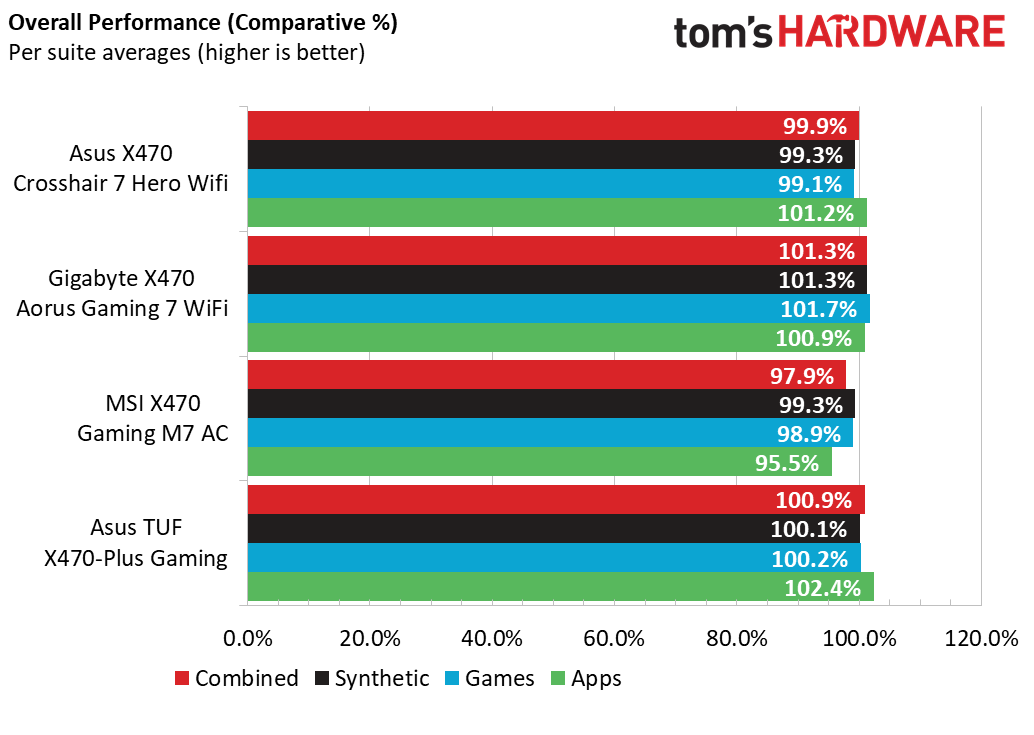Asus X470 Crosshair VII Hero (Wi-Fi) Motherboard Review: High-Priced Excellence
Why you can trust Tom's Hardware
Test Configuration and Benchmarks
| Sound | Integrated HD audio |
| Network | Integrated Gigabit Networking |
| Graphics Driver | GeForce 399.24 |
For analysis today, we're throwing in our latest X470 flagship samples from Asus, Gigabyte, and MSI. We'll also throw in the Asus TUF-X470 board to show that standard performance only tells part of the story regarding high-end PC builds. Our X470 test platform has been around the block a few times and provides stable results across the board.
Synthetics, Applications, and Gaming
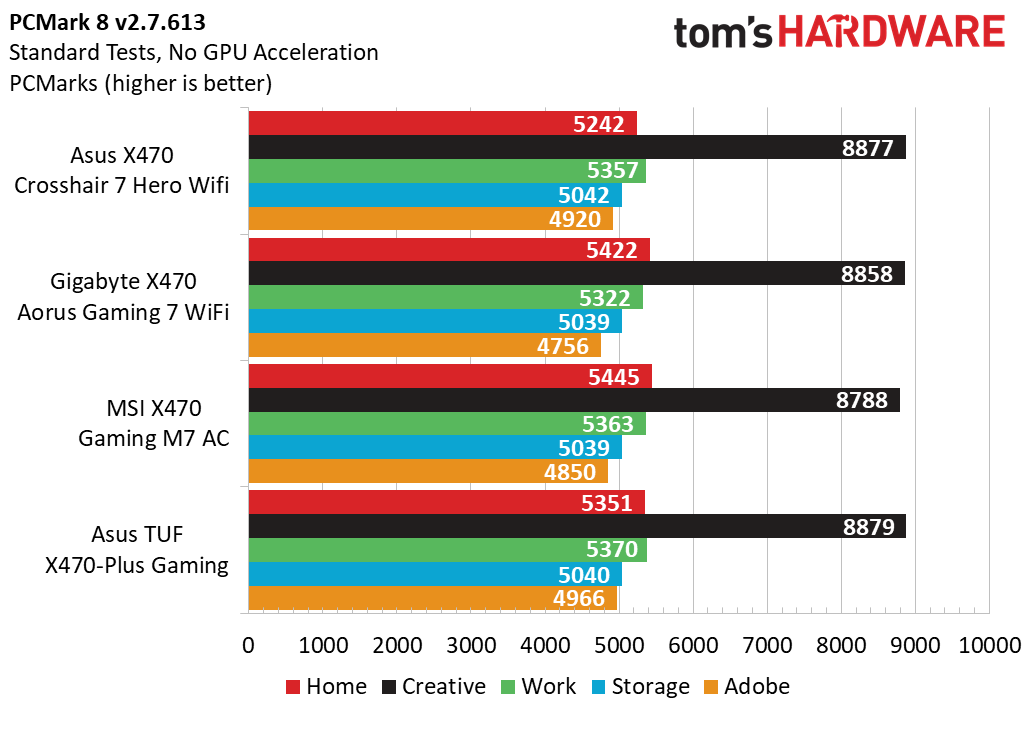
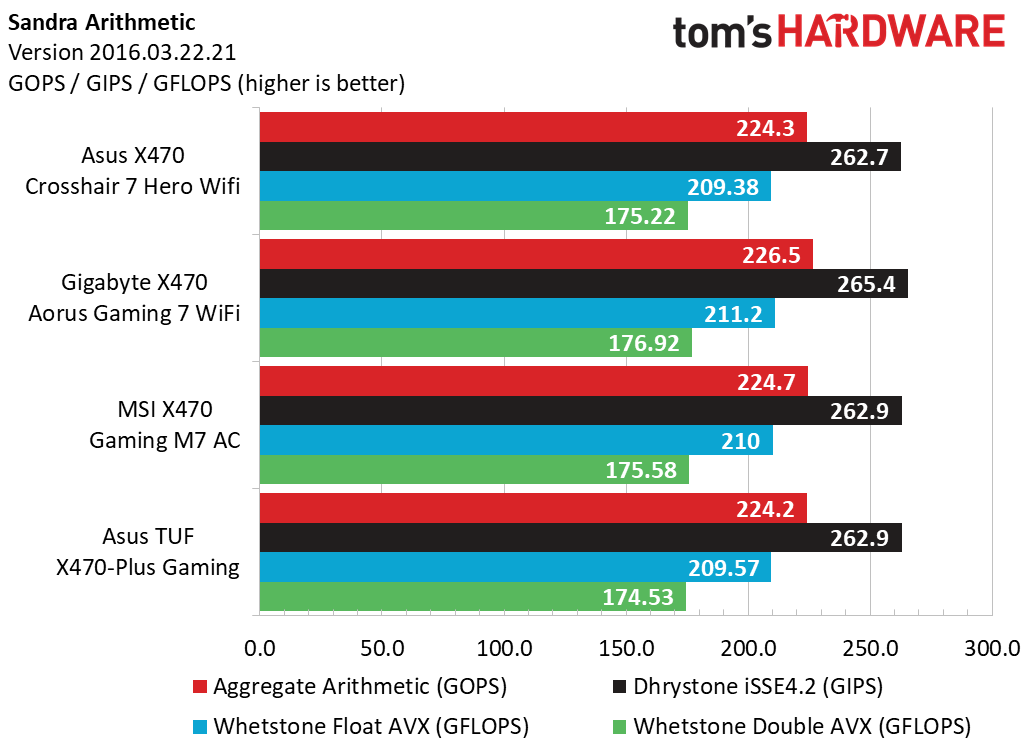
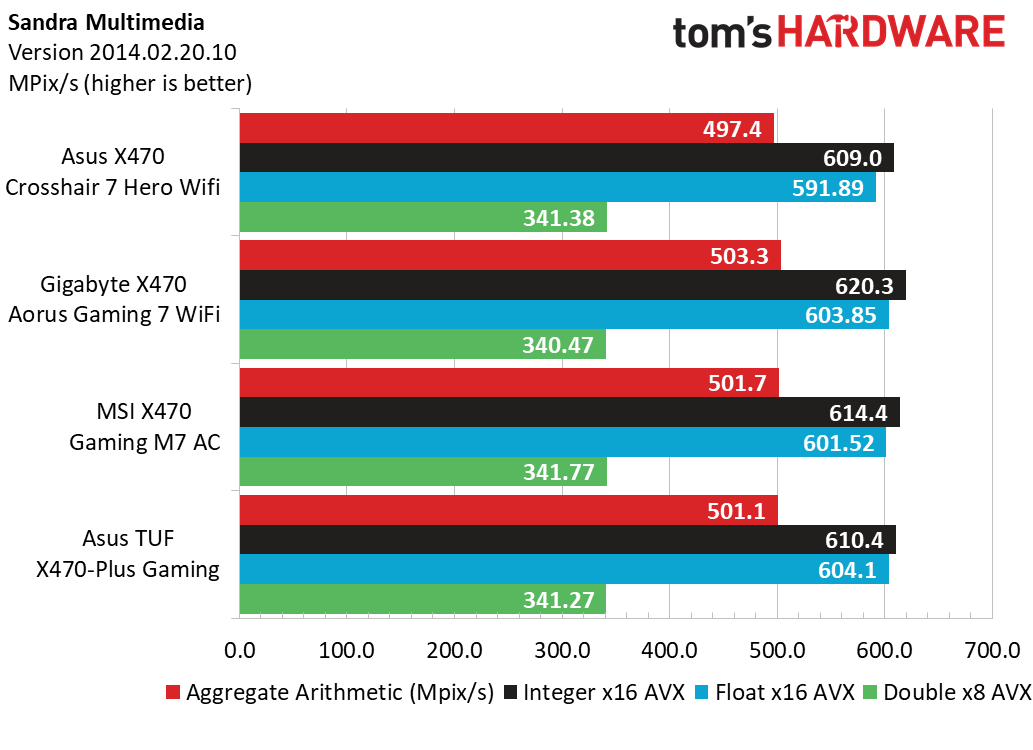
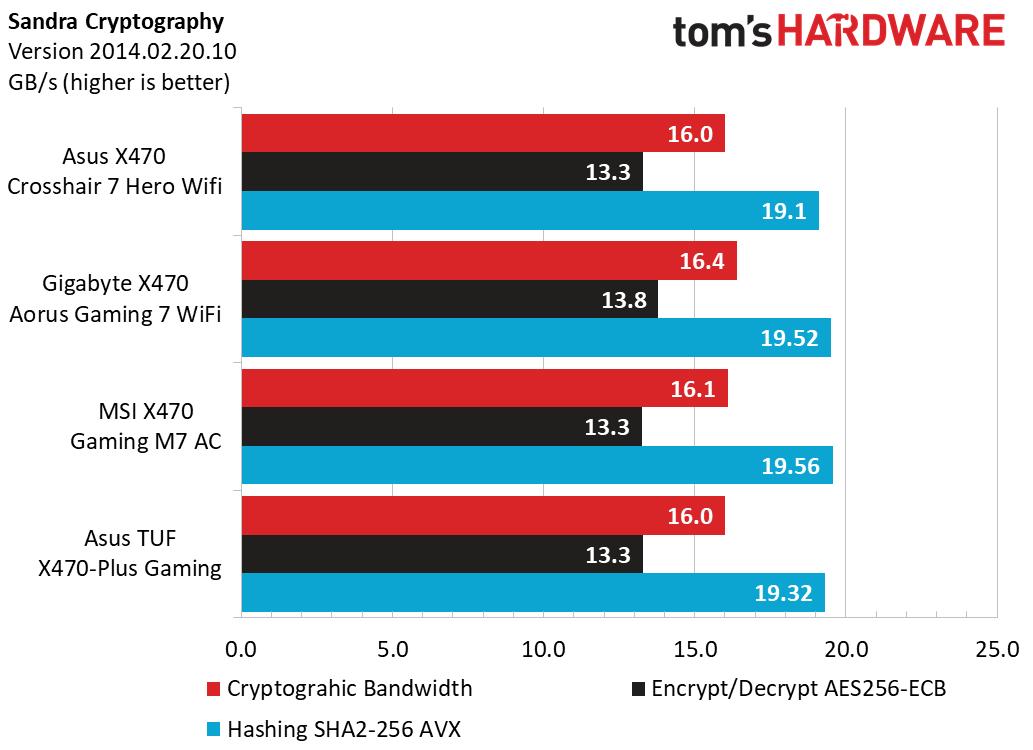
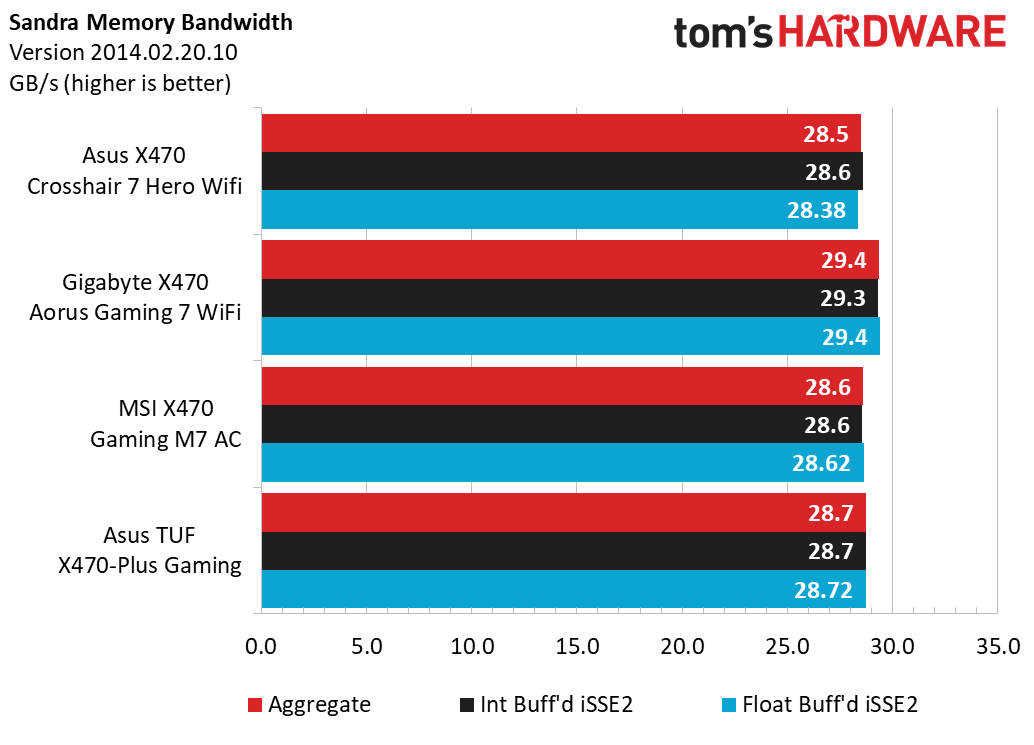
Our X470 data has been stable over time and this board’s synthetic results are not surprising. For PCMark, the Home suite hits the Crosshair for a last-place finish while the Adobe programs perform admirably with a 2nd place showing. Sandra Arithmetic places the Asus boards towards the back of the pack on average by a single percentage point, and Multimedia displays similar placing overall. With Cryptography, the Gigabyte Aorus X470 Gaming 7 continues to inch ahead of all boards tested, and continues to stretch its lead with the Memory Bandwidth benchmark.
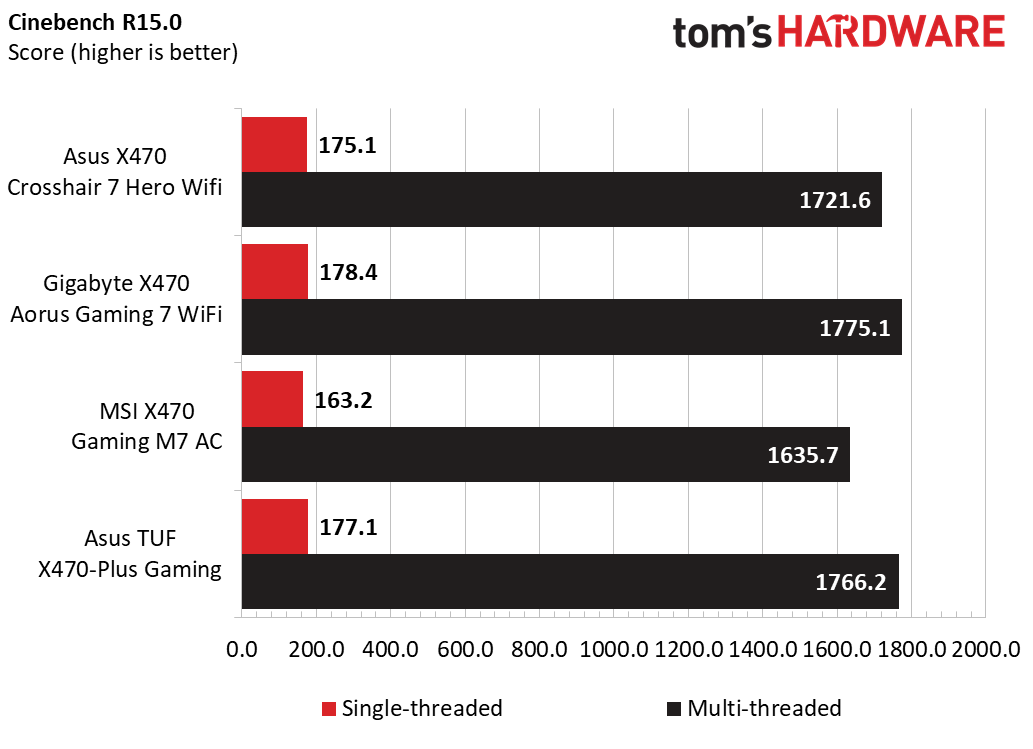
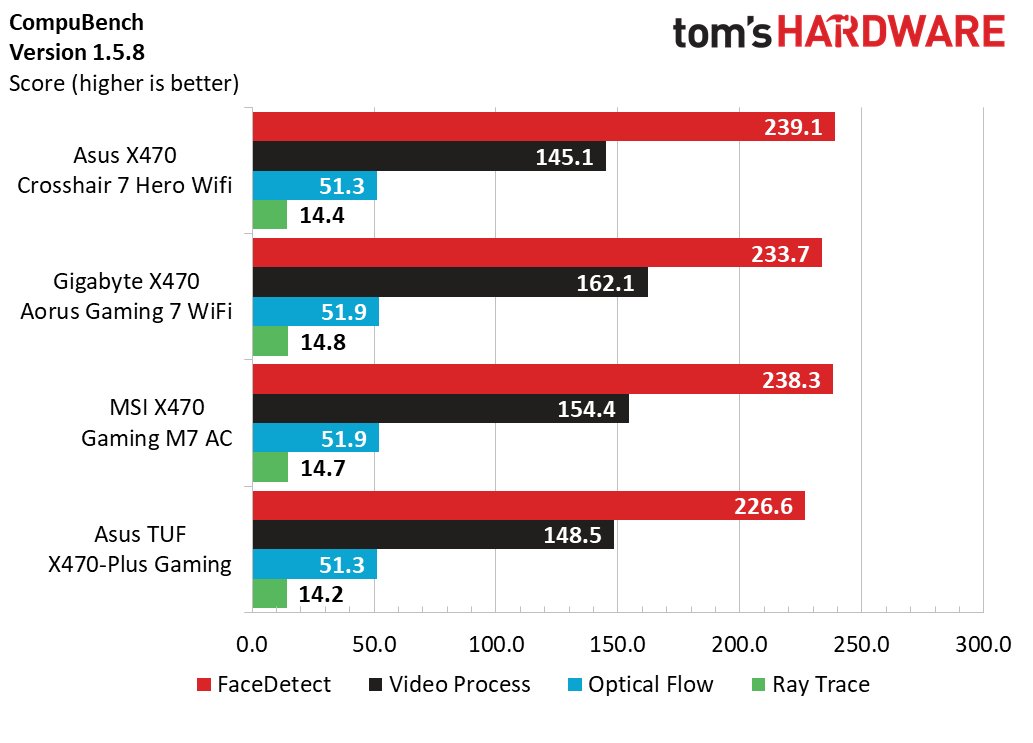
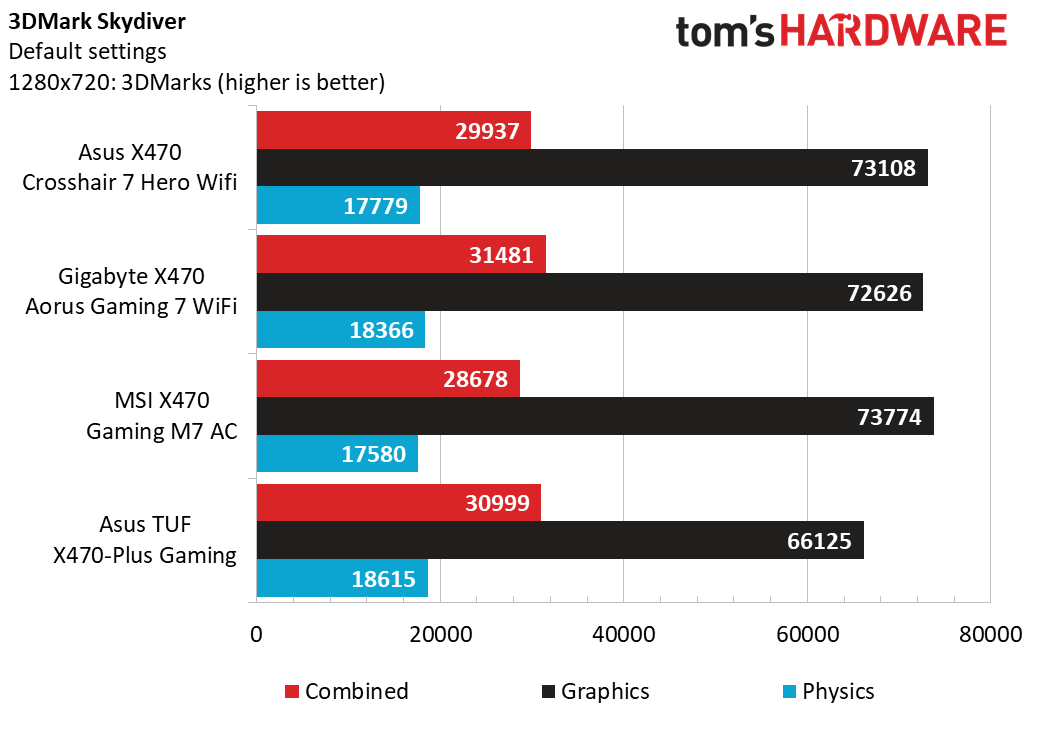
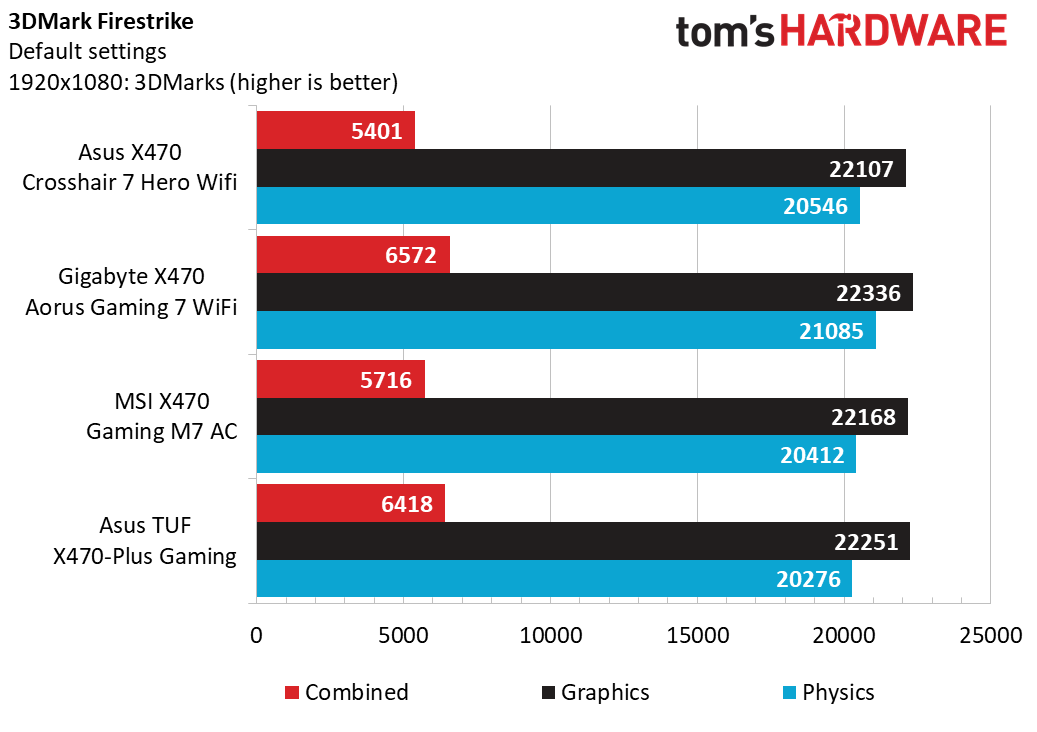
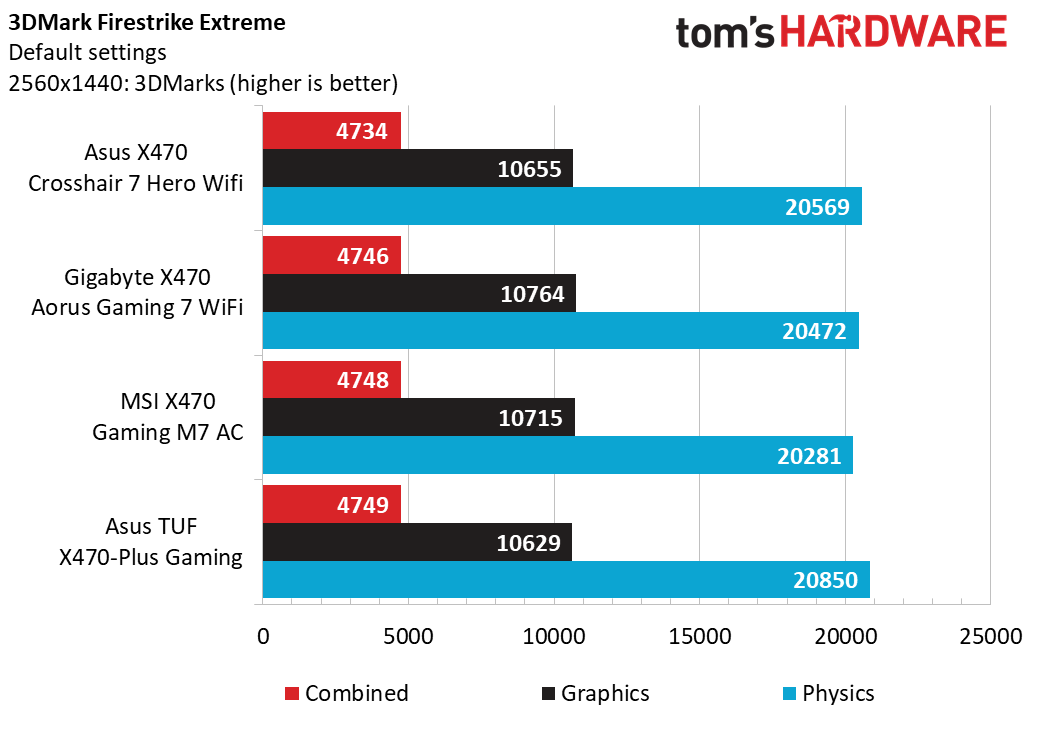
Cinebench does shake up the rankings though, with the Asus TUF taking 2nd place, bumping the Crosshair VII bumps up to third place. However, that short glimpse of glory is taken away by both the Gigabyte and MSI boards with Compubench with only notable wins in the Facedetect and the unrepresented Fluid 64k workload. Futuremark’s gaming synthetics begin to shed some light for the Asus X470 Crosshair VII Hero with a 2nd and 3rd place win on the Skydiver and Firestrike Extreme, respectively.
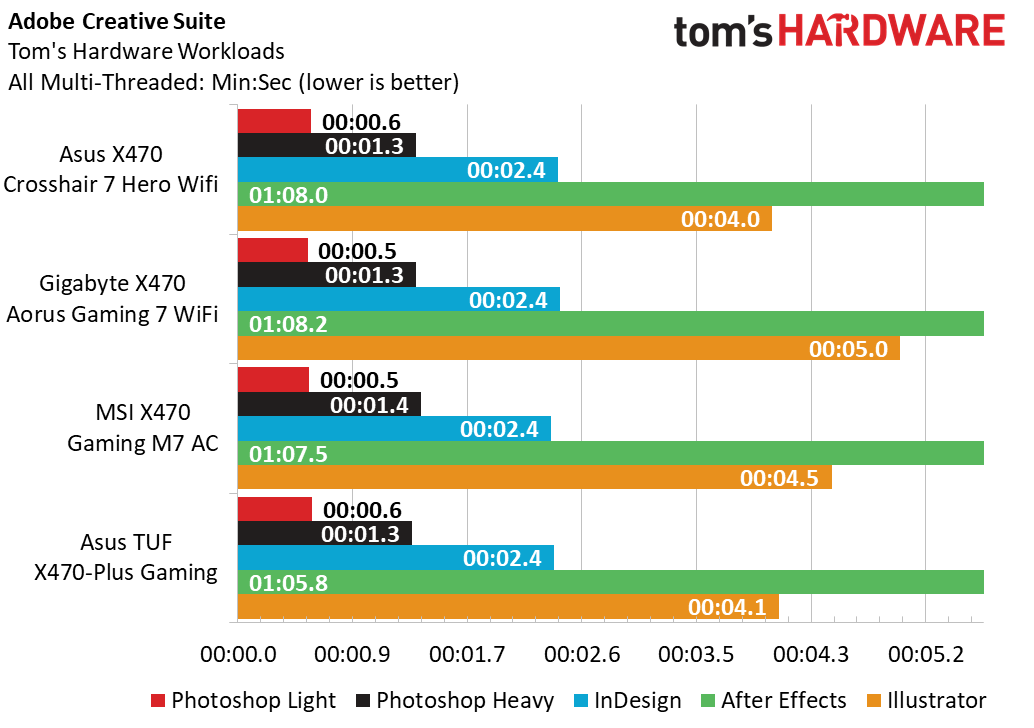
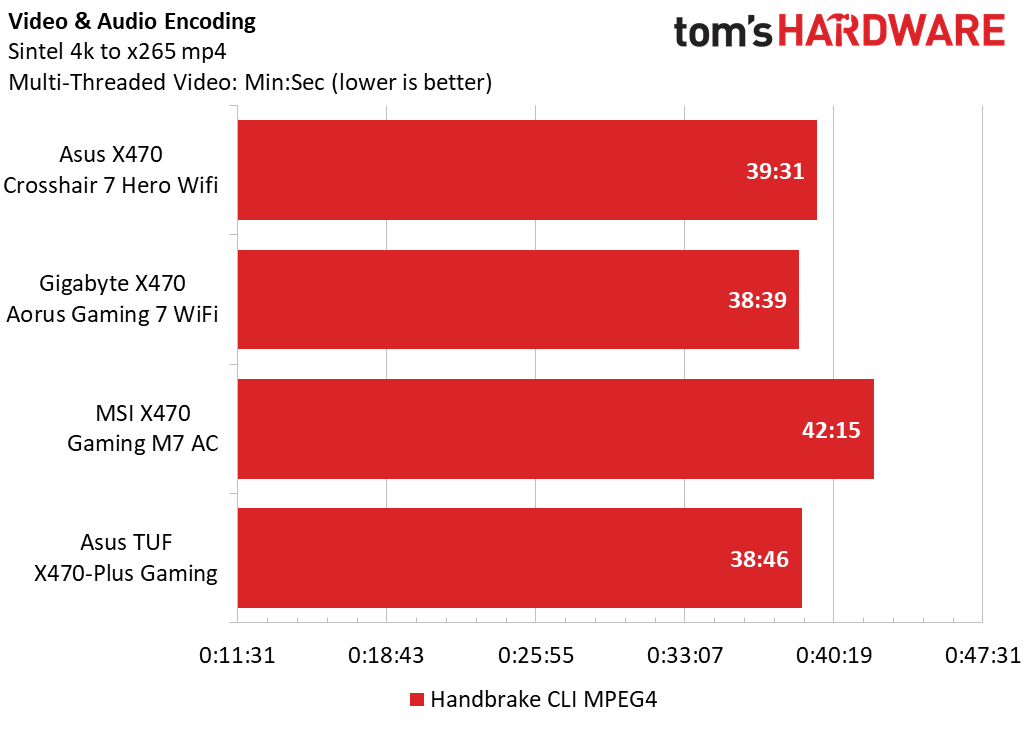
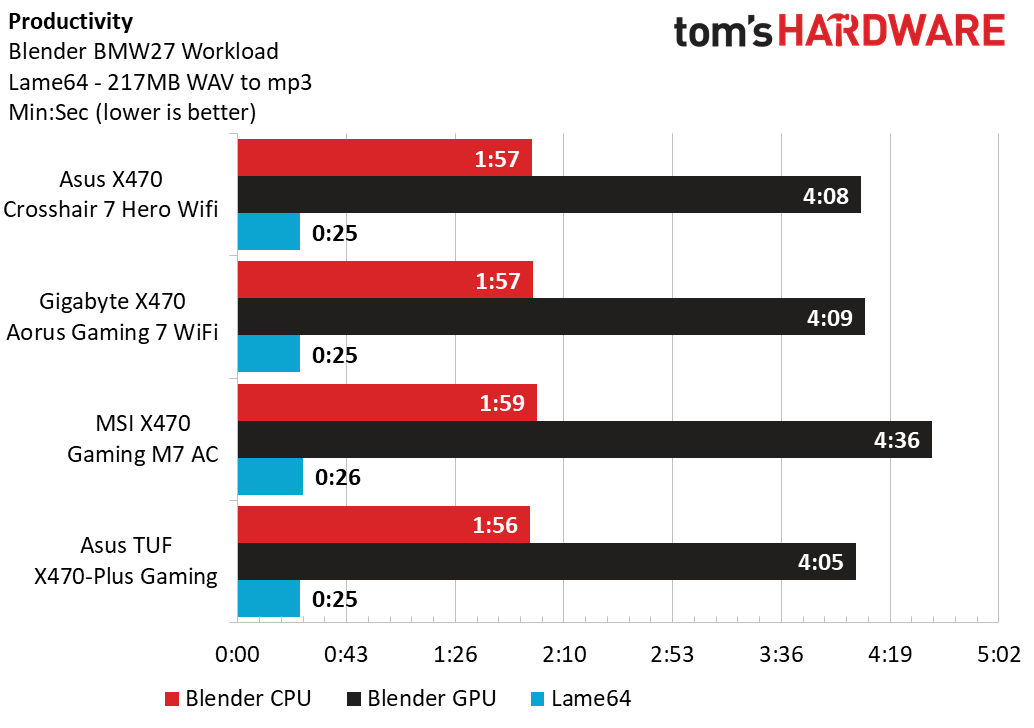
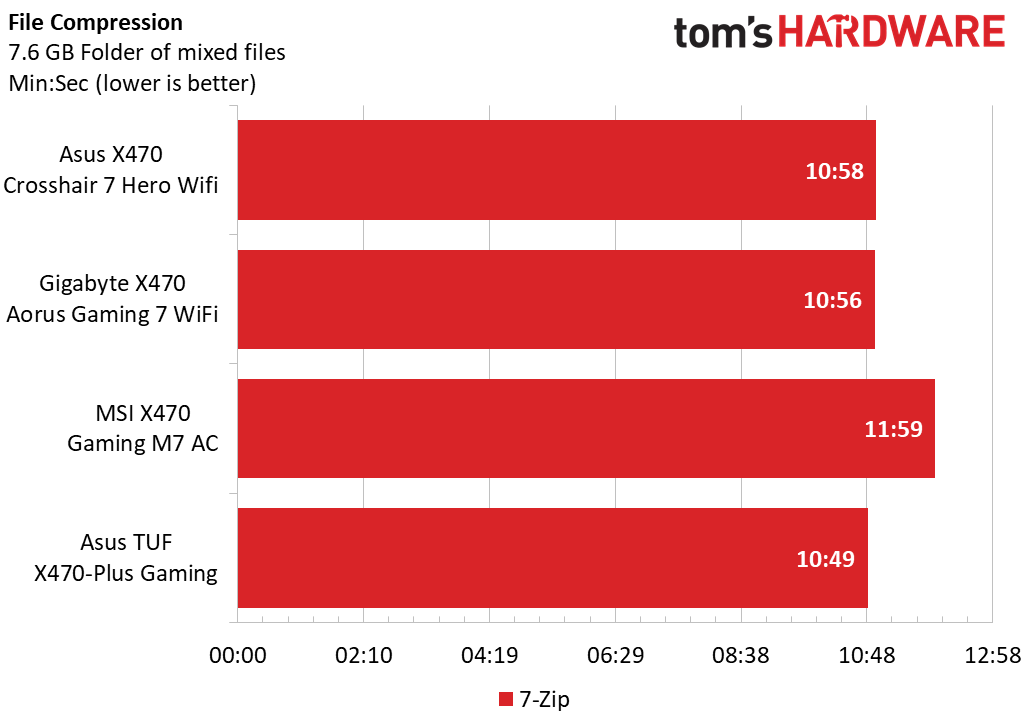
Application benchmarks do give the Asus boards a reprieve since the MSI board had a hard time with performance anxiety. With Handbrake, the Crosshair lags on its 4k Sintel scene encode, and 7-zip shows a less extreme delay when compressing a large collection of ISOs and mp3 files in our 7.6GB folder. Blender does show all systems performing within seconds of each other, except for that pesky GPU render with the MSI Gaming M7 AC. Lastly, inspecting our PCMark Adobe suite results a bit more closely, the Asus boards finally get the chance to take 1st and 2nd place on average, and the Gigabyte board’s slip up with Illustrator really cripples its results here.
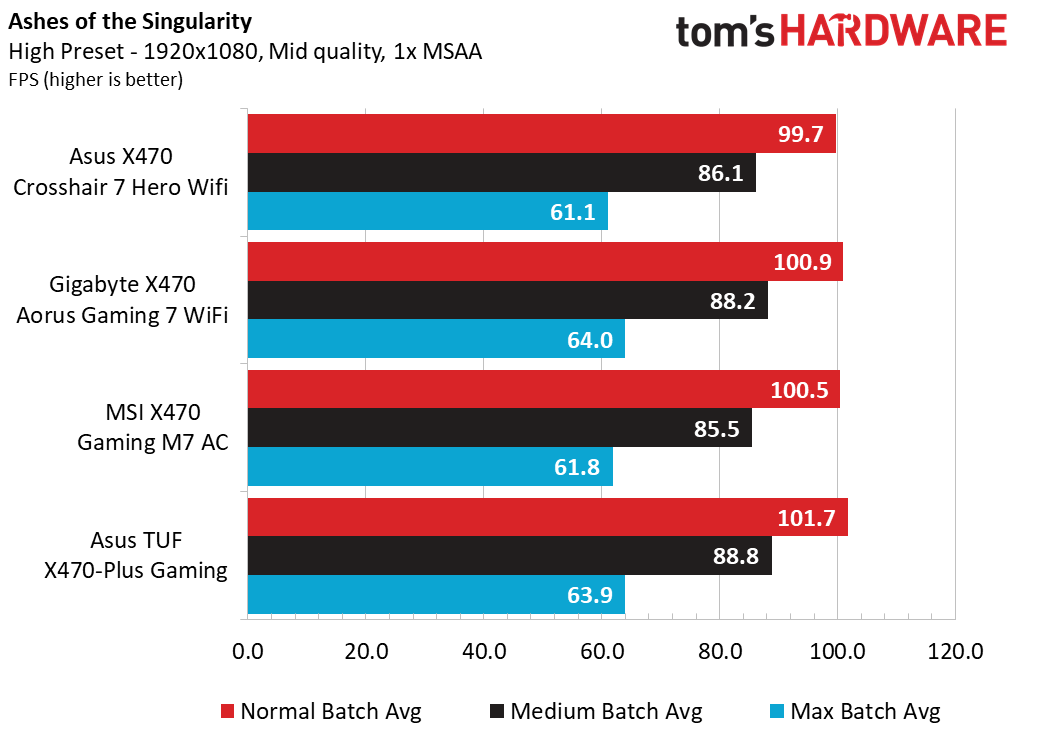
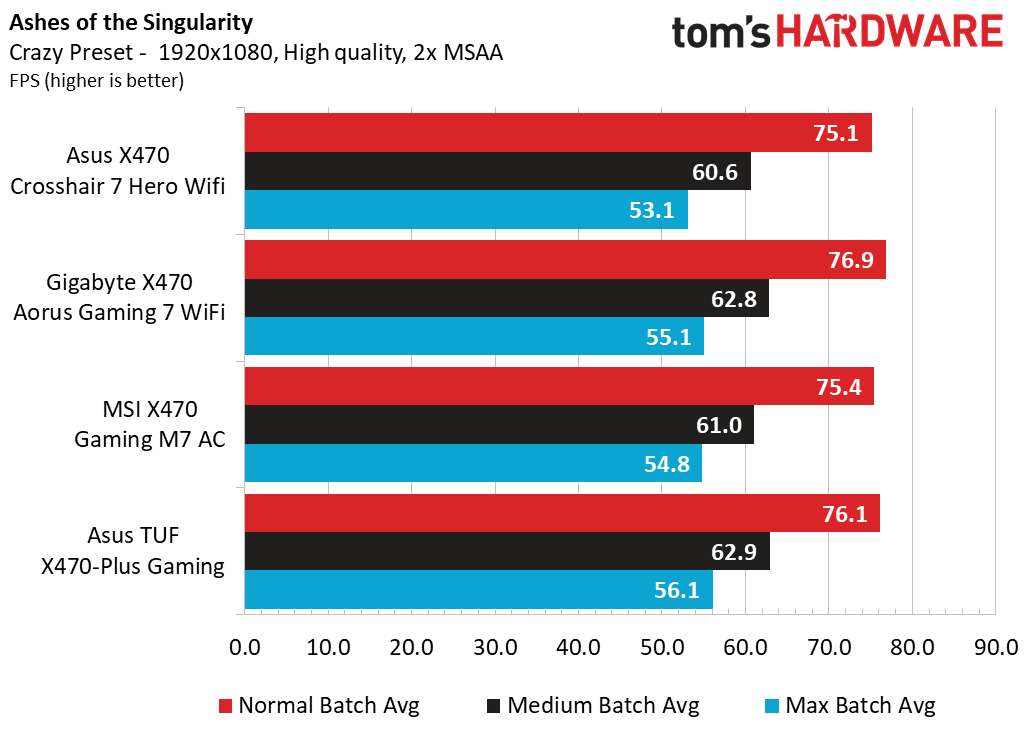
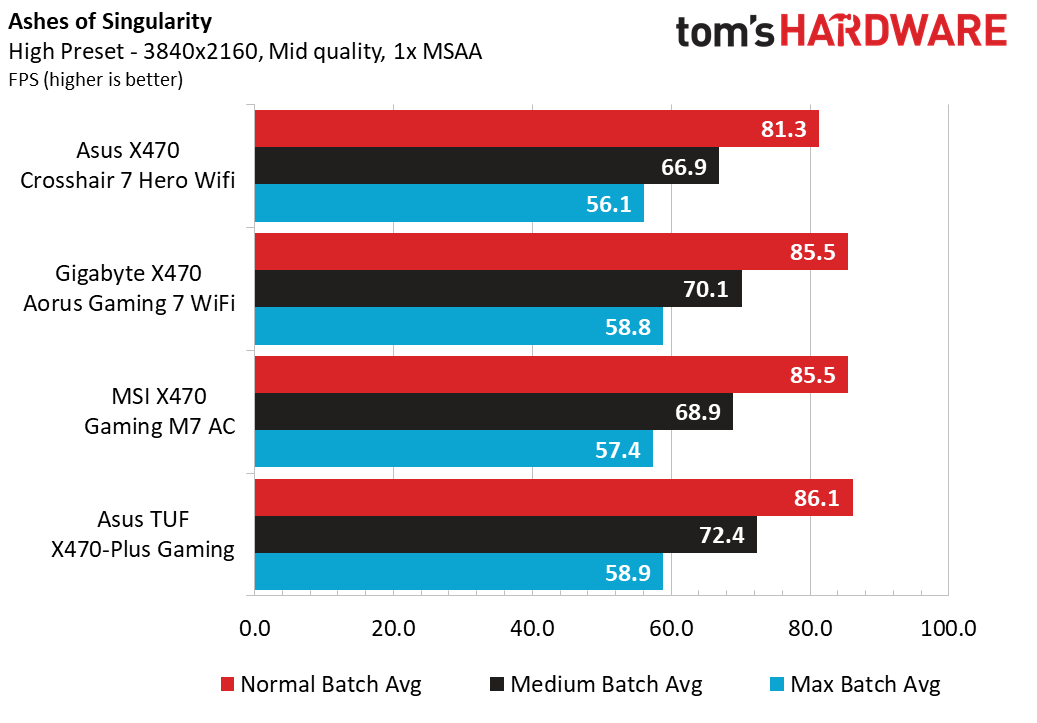
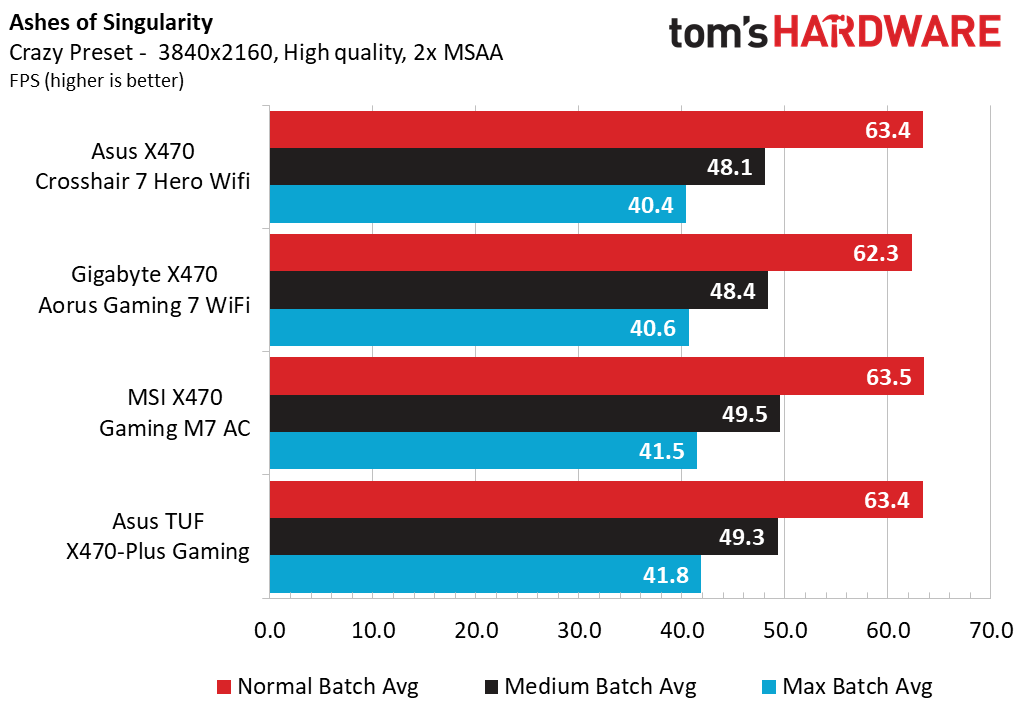
If you’ve read our previous Ryzen board reviews, you know we’re starting to see that all samples tested are beginning to perform within frames of each other, which make this data less exciting than it was at launch time. Regardless, with Ashes, we see the X470 Crosshair VII Hero take last place finishes, but only by less than 3 frames at 1080p and up to 5 frames at 4k. The data looks like everything is within the margin of error, so we’ll have to see how the board does with other games.
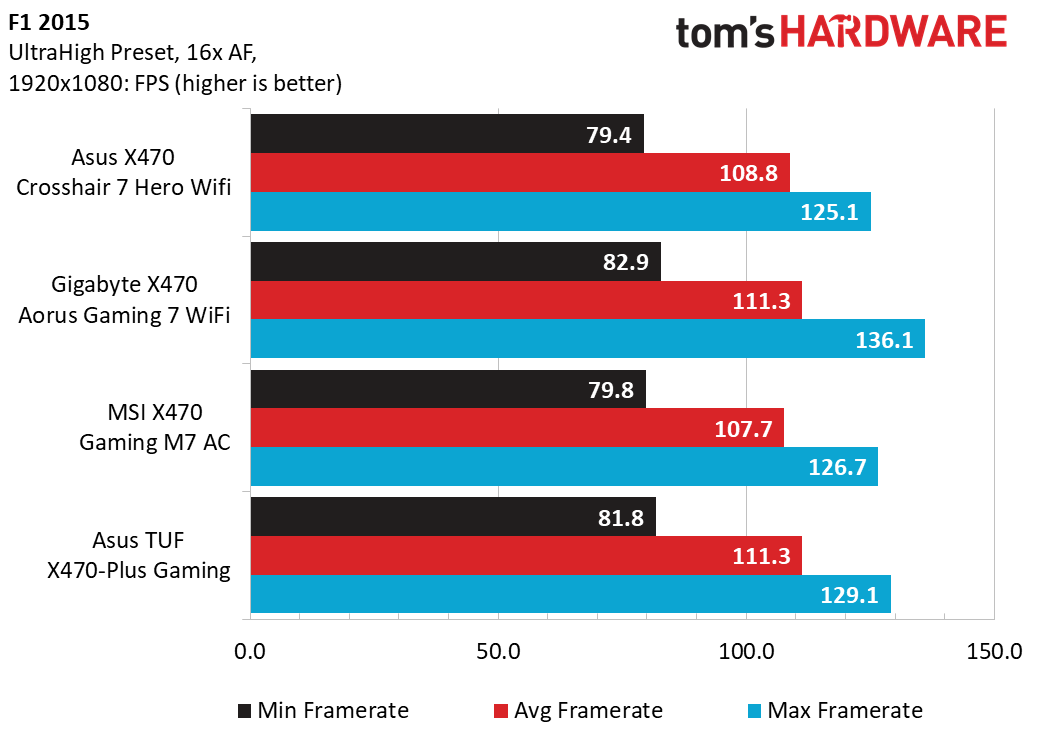
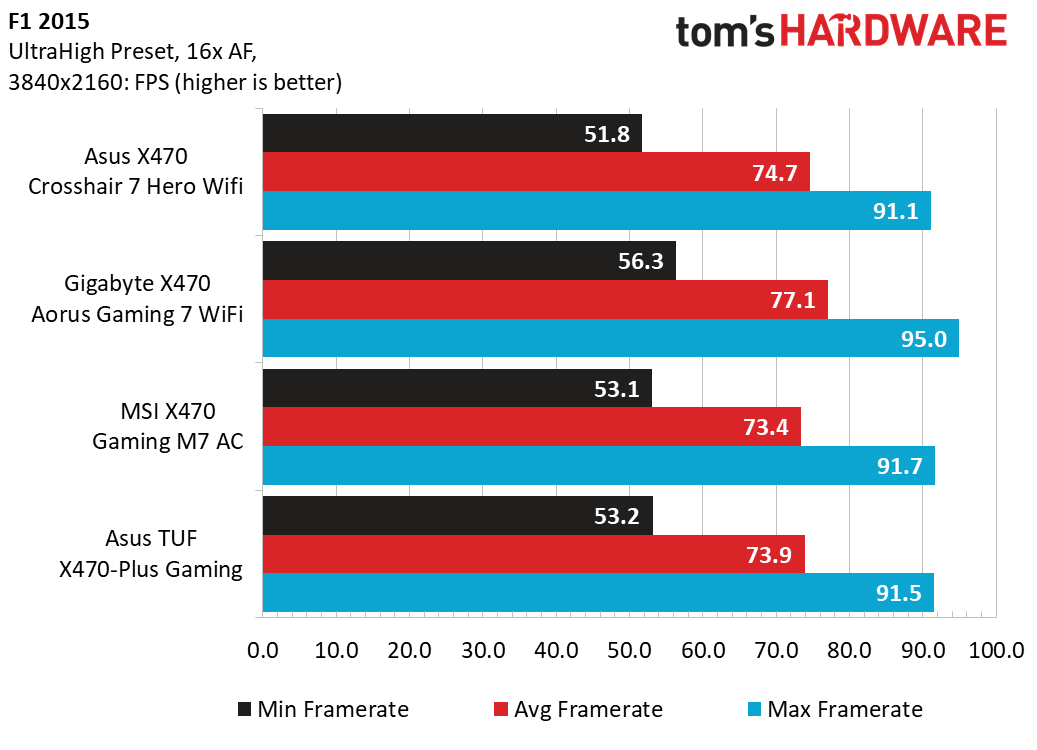
With F1 2015, the Crosshair performs slightly better at average framerates and 1080p, but at 4k the Gigabyte X470 Aorus Gaming 7 manages to pull ahead by 3-5 frames. Again, small margins are painting an overly negative image.
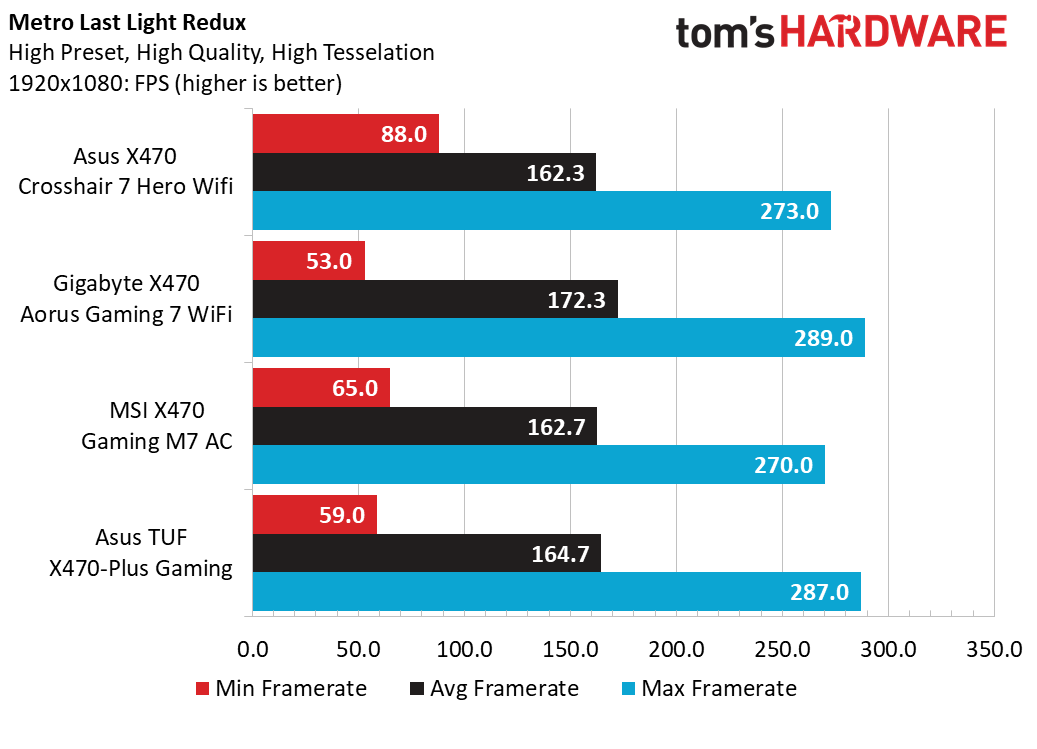
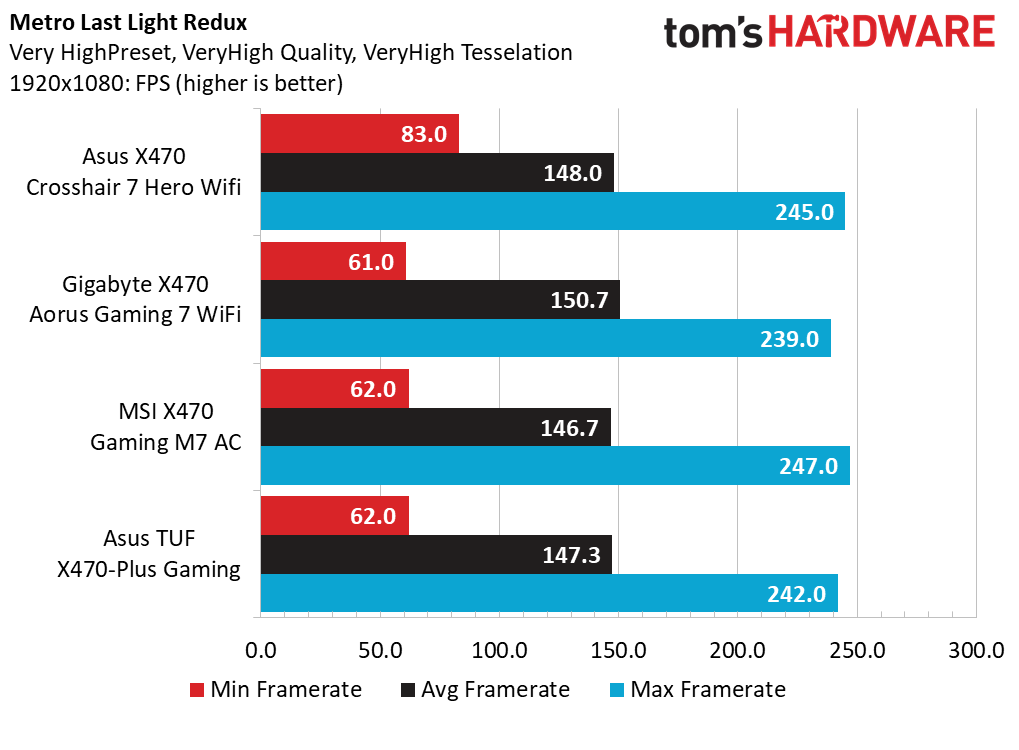
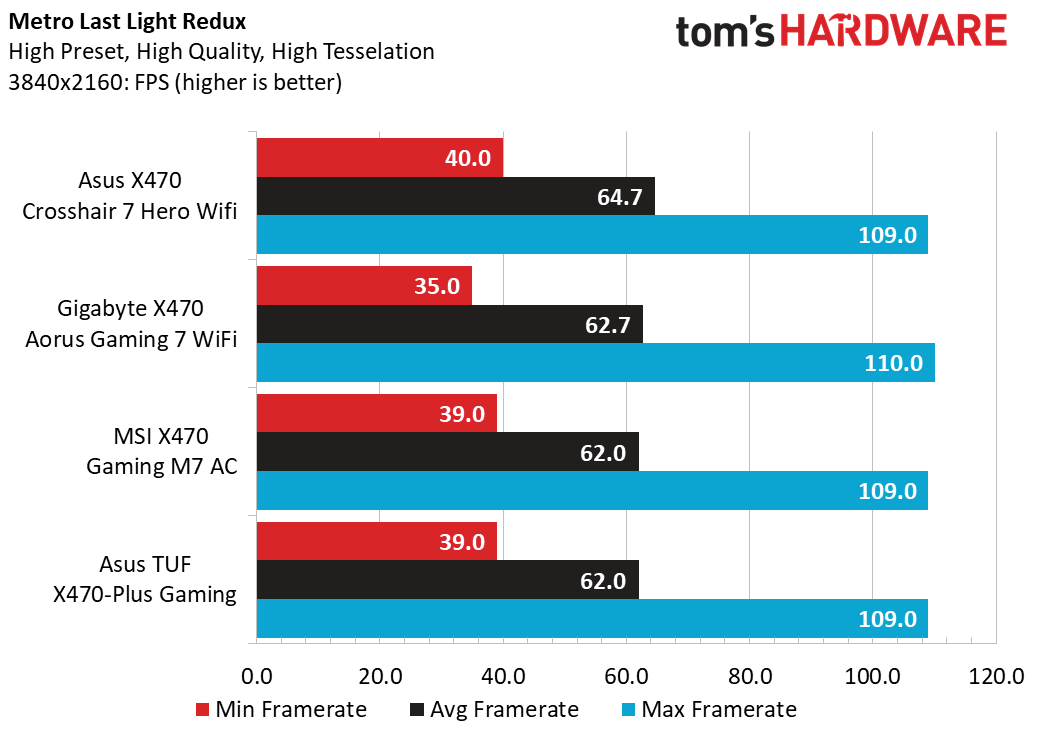
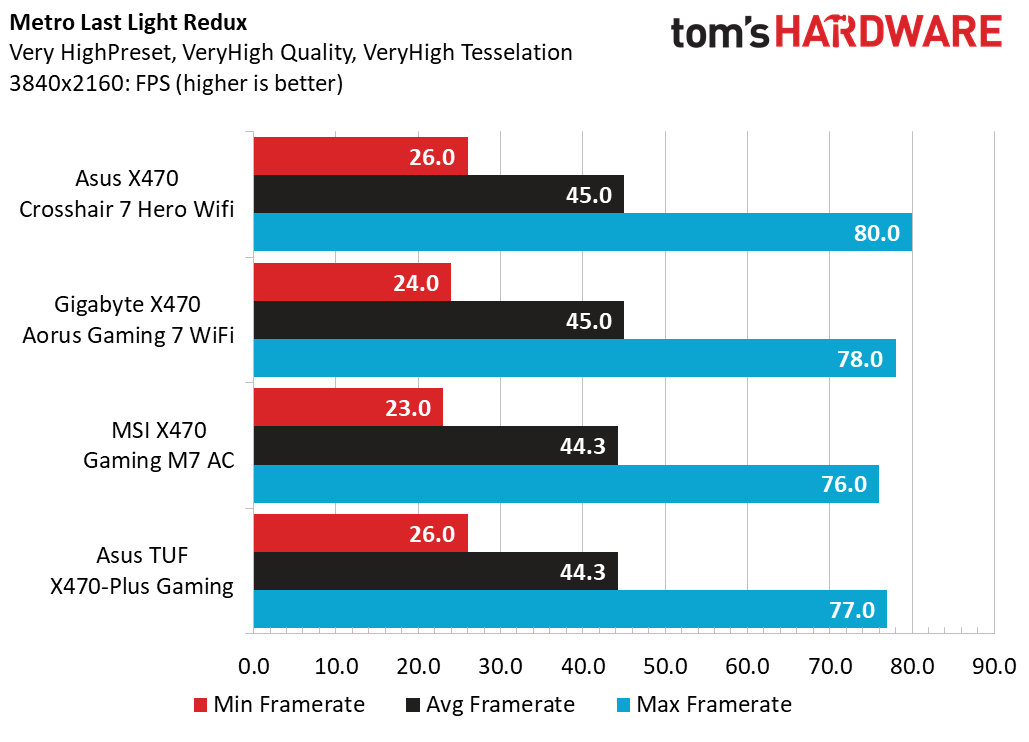
Given Metro Last Light’s frame stuttering at lower frame rates, we are scrapping the minimum and maximum framerates from our performance calculations today. With that said, the Crosshair VII stays within frames of the average at 1080p High and does pull to second place at 1080p Very High settings. 4k shows promising results at both High and Very High detail settings for the Asus flagship, with the largest gap being only 2.7 frames.
Get Tom's Hardware's best news and in-depth reviews, straight to your inbox.
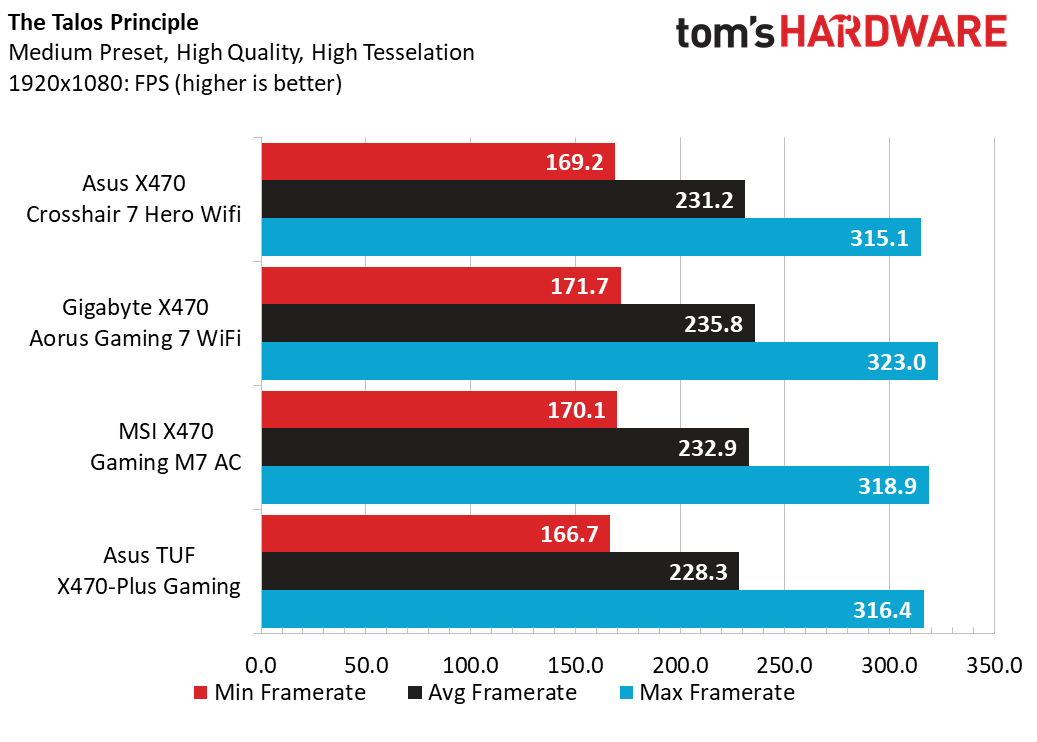
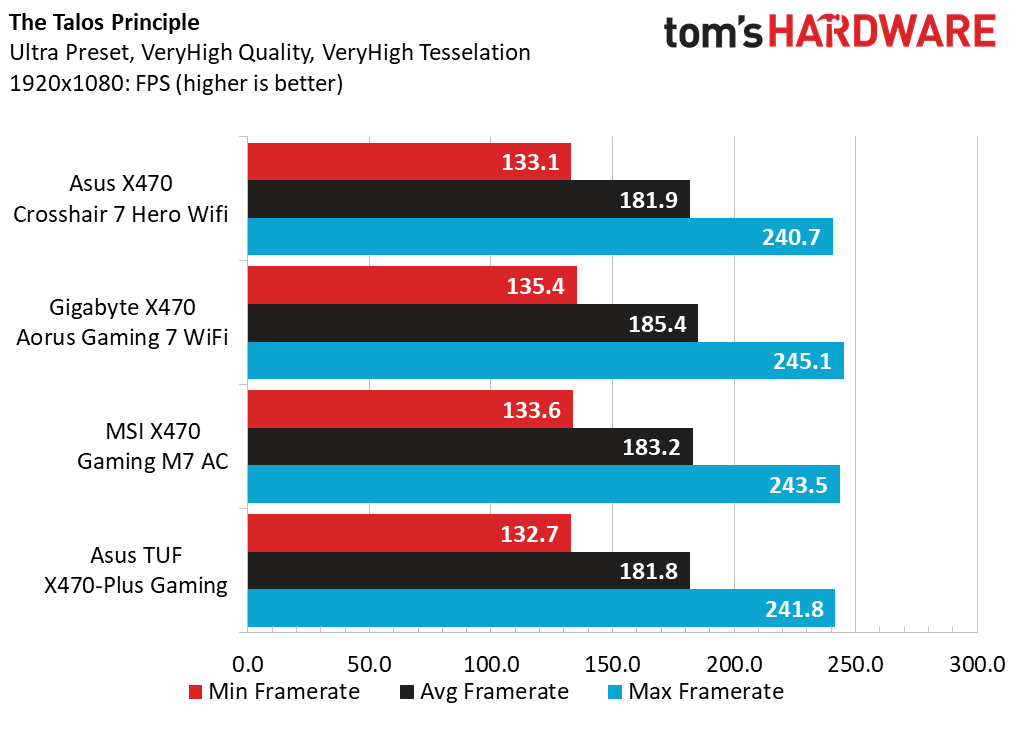
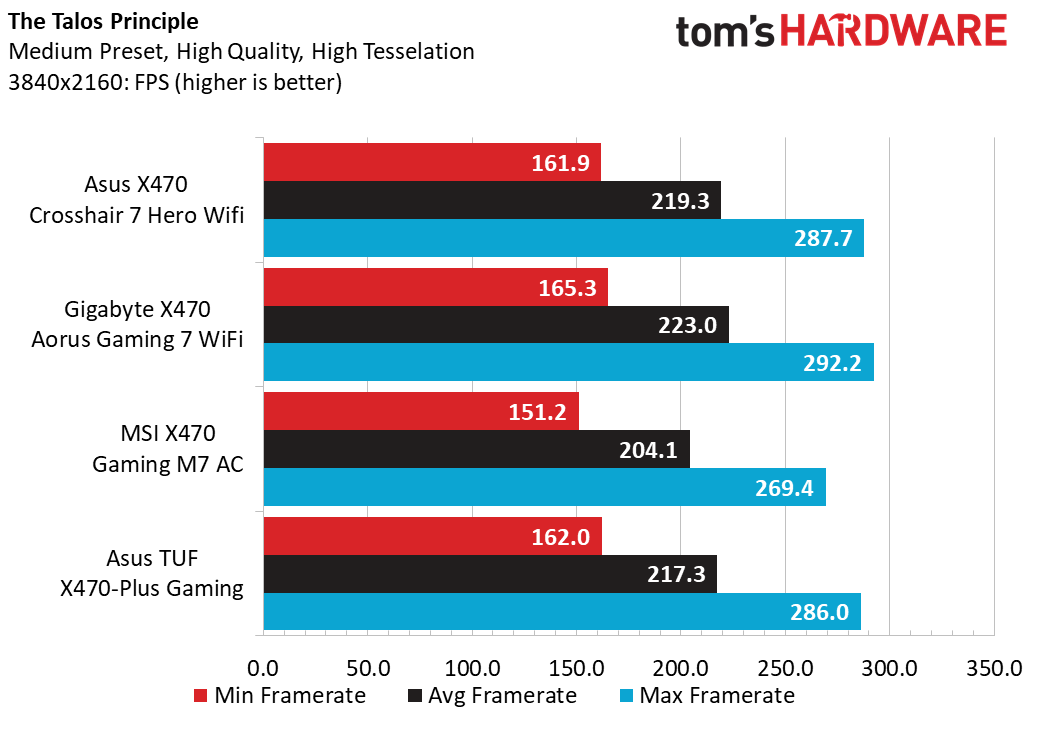
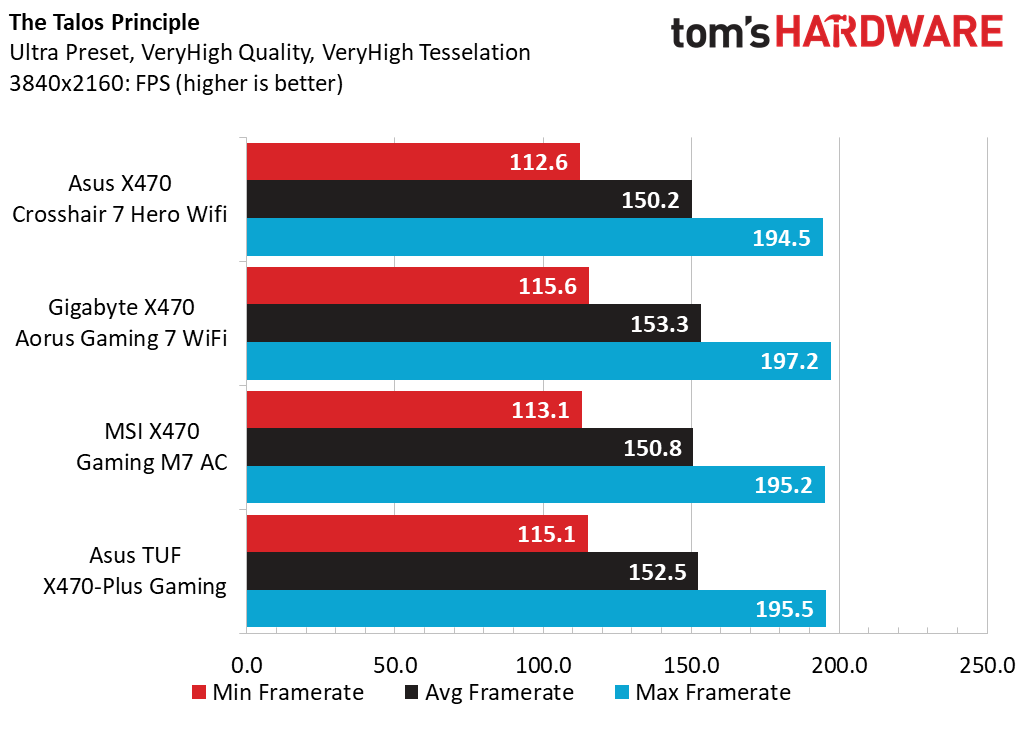
If you frequent the Humble Bundle, The Talos Principle is regularly available for a low cost and provides an interesting and fluid puzzle solving experience for this processor and graphics card combination. The Full-HD resolution observation of the Asus boards lagging by nearly 4 frames at either detail setting does tighten up with the increased graphical load, but even then, we’re talking 200+ frames per second at Medium presets. 144Hz panels will have no problem at 4k and Ultra settings.
Overall, the Asus X470 Crosshair VII Hero Wifi performs as expected compared to all the boards in the lineup today, nearly hitting exactly average performance. Its TUF brother shows even better cumulative performance with all things considered, but the star of the show is the Gigabyte X470 Aorus Gaming 7. It just goes to show you that the X470 roll out was MUCH smoother than our X370 experience, since our recent tests are still well within the margin of error of our X470 launch article.
MORE: Best Motherboards
MORE: How To Choose A Motherboard
MORE: All Motherboard Content
Current page: Test Configuration and Benchmarks
Prev Page Intro and Product Description Next Page Power, Thermals, and Overclocking